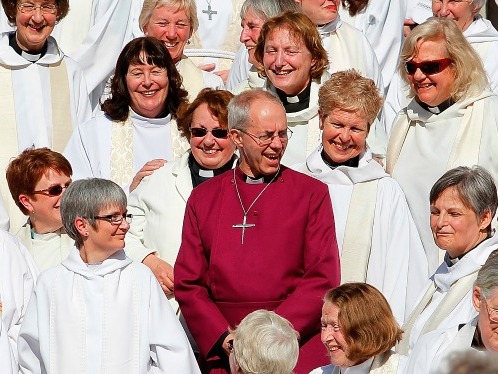One of the Church of England’s most senior officials has said that women will be favoured over men when the church appoints new bishops.
The Telegraph reports that William Fittall, the Secretary General to the General Synod, told parliament’s Ecclesiastical Committee that when a bishop’s see falls vacant and there are male and female candidates considered equally well qualified, the female candidate should be favoured over the male.
The General Synod approved women bishops last week after several previous failed attempts. Although many commentators are saying it has ended years of wrangling over the position of women in the Anglican Church, this latest announcement suggests that the church is continuing to fret over the issue.
As the Church of England is an established church, any changes to its ecclesiastical laws must be ratified by the British parliament. The first part was completed yesterday with a unanimous vote of the Ecclesiastical Committee.
Also speaking to the committee was Archbishop of Canterbury Justin Welby, who claimed that there was no longer a culture “culture of suspicion” between different factions of the church. It remains to be seen, however, how traditionalists will react to the news of positive discrimination for the episcopate.
Although the legislation contains provisions for traditionalists who cannot accept the authority of female bishops, many will now worry that they are being increasingly sidelined.
Following last week’s vote, the leader of the Ordinariate of Our Lady of Walsingham – a group within the Catholic Church set up to allow members of the Church of England to convert while keeping many of their traditions – announced plans to attract more disillusioned Anglicans, including a series of events in September.
Although the Church of England is exempted from the Equalities Act, which encourages positive discrimination in certain professions, it still applies its principles when appointing parish priests. Mr Fittall said this should now also be applied to appointing bishops.
Speaking of the provisions of the Act, Mr Fittal said: “They allow you to put more effort into training and in particular they enable you, in the case of a tiebreak, where you have got insufficient diversity, to lean in favour of the under-represented group.
“I think the spirit of that is something we would want very much to have in mind and would encourage the Crown Nominations Commissions and indeed bishops appointing suffragans to have regard to.
“But we will do that as a matter of policy because we think it is right even though technically that doesn’t apply already to quite a number of our posts.”

COMMENTS
Please let us know if you're having issues with commenting.